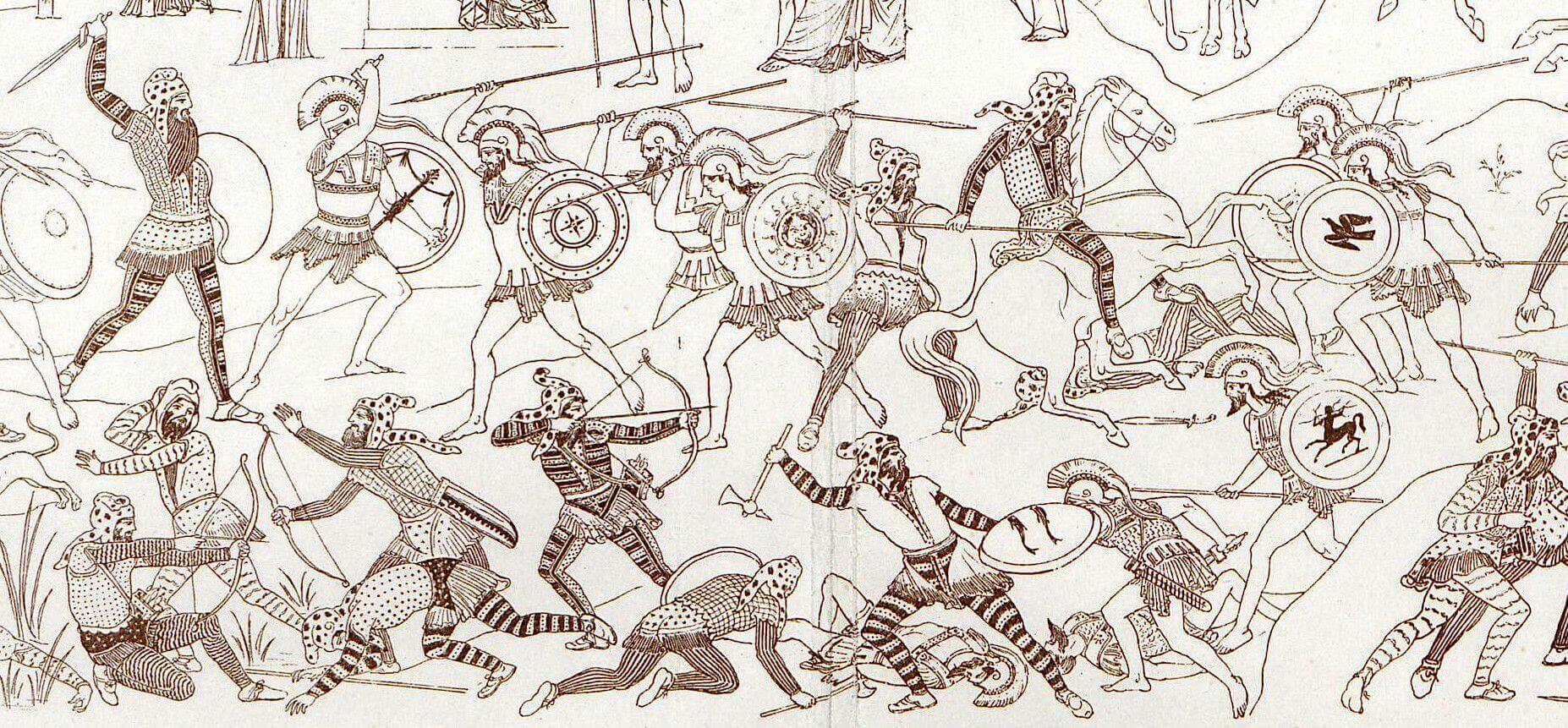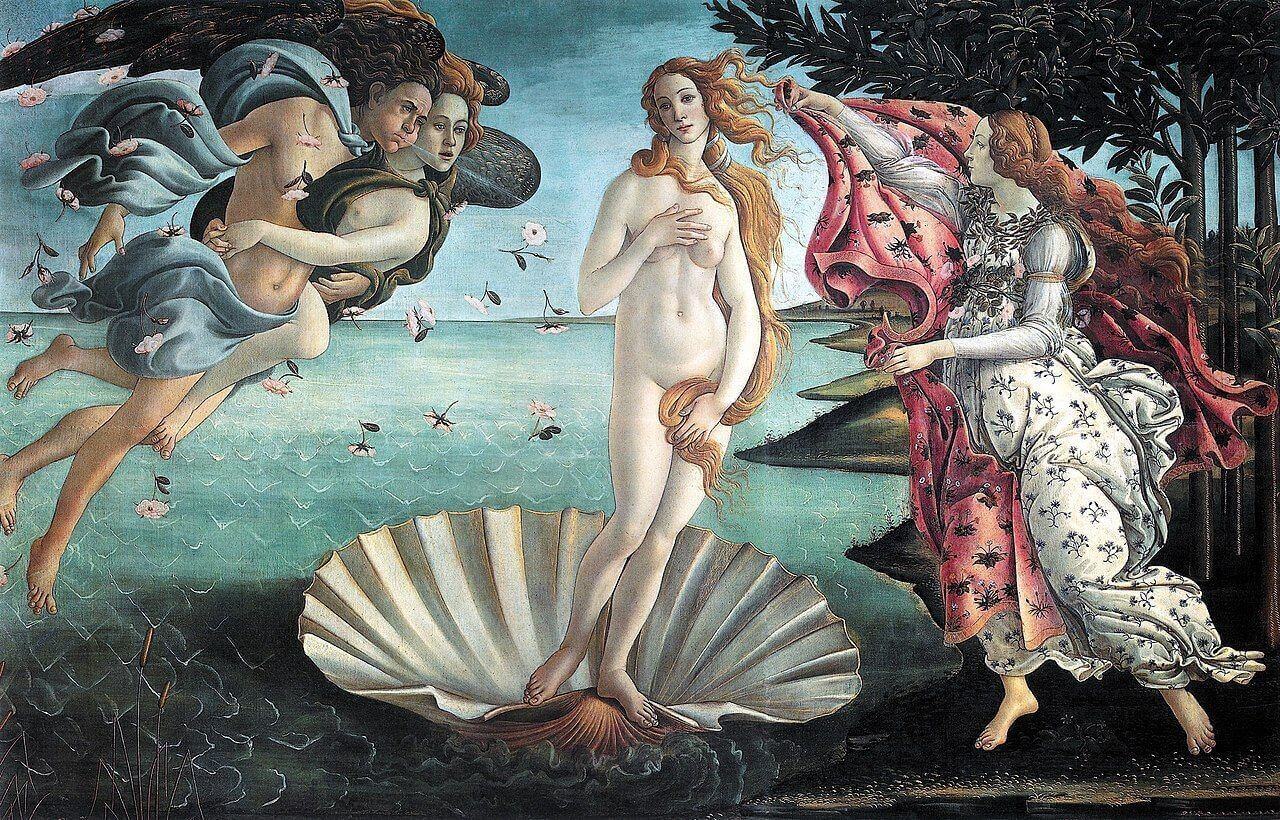The first Stoic
Zeno of Citium—not to be confused with Zeno of Elea—was the founder of the Stoic school of philosophy. In recent years, Stoicism has seen a huge resurgence, both as an area of academic interest, and also as a popular philosophy offering guidance in our everyday lives. But how did it all begin?
Life
Zeno (334-262 BCE) came from the city of Citium in Cyprus, but like many philosophers of his day, he eventually ended up in Athens, the intellectual hub of the ancient Greek world. Diogenes Laërtius, everyone’s favourite unreliable narrator, tells us several things about Zeno’s life, most of which are probably spurious. Diogenes says Zeno “had a neck that was bent to one side”, that he was “thick-legged, flabby, and weak,” and that he liked green figs and sunbathing.
A journey to Athens
Diogenes also says that Zeno was a merchant. He turned up in Athens at the age of thirty after a shipwreck. Then he wandered into a bookshop and picked up a copy of Xenophon’s Memorabilia, an account of the life of Socrates. Zeno was deeply impressed and asked the bookseller where he could find somebody like Socrates. At that moment, Crates the Cynic philosopher happened to be going past the bookshop, and the bookseller said, “Follow him!” So Zeno did.
Crates was himself a follower of the philosopher Diogenes of Sinope (who is not the same Diogenes as Diogenes Laërtius!), the founder of the Cynic school. The Cynics were preoccupied with the question of what it meant to live in accord with nature. In pursuit of this, they embraced public shamelessness and turned their back on the social conventions of their day.
Zeno took on the idea of living in accord with nature, but he had no taste for shamelessness. Diogenes of Sinope was fond of demonstrating his commitment to all things natural by masturbating in public, but this simply wasn’t Zeno’s kind of thing. It’s not for everyone. So Zeno continued his philosophical search.
In the painted porch
Although some of the roots of Stoicism can be found in the teachings of the Cynic school, Zeno was also impressed by the followers of Socrates. For some time in Athens, he studied with Polemo, who was the head of Plato’s academy. But in the end, he broke with the Platonist school, just as he had broken with the Cynics. And eventually, Zeno set up a school of his own, sometime around the year 300 BCE.
The philosophical school founded by Zeno met at the stoa poikile, or “painted porch”, a covered walkway filled with paintings of historical and mythical battles. Because of their chosen meeting-place, this group of philosophers eventually became known as the Stoics.
 Reconstruction of a painting from the Stoa Poikile. Carl Robert 1895. Public Domain via Wikimedia Commons.
Reconstruction of a painting from the Stoa Poikile. Carl Robert 1895. Public Domain via Wikimedia Commons.
Zeno wrote a number of books, including a Republic, influenced by the Republic of Plato, and a book called On Living in Accord with Nature. But none of these books has survived. Nevertheless, Zeno’s teaching was immediately popular. And the school he founded went on to become one of the most influential and long-lived in the ancient Greek and Roman worlds.
Philosophy
The three pillars of philosophy
Contemporary accounts of Stoic philosophy often present it simply as a set of practical guidelines for how we should live. But for Zeno, the question of how to live couldn’t be severed from deeper philosophical questions. So Zeno divided philosophy into three broad areas of inquiry: logic, physics and ethics.
For Zeno, logic is essentially about how we think about the world, both individually and collectively. So it includes a whole range of different disciplines, including rhetoric (the arts of persuasion), grammar, theories of perception, questions about knowledge and so on.
Physics is about the nature of the universe. For the Stoics, this isn’t simply about the universe as a natural entity: they also saw the universe as something divine. So physics for the Stoics involves investigating the universe on the understanding that it is both natural and divine.
For the Stoics, the cosmos as a whole is underpinned by logos or reason, which pervades the entire universe like a kind of fire (see also the philosopher file on Heraclitus). Reason, the Stoics argued, is an integral aspect of the material nature of the unfolding cosmos. And this is why the cosmos as a whole can be said to be divine: God, for the Stoics, is nothing other than the creative, productive aspect of the unfolding cosmos.
Finally, there is ethics, or questions about how to live. This is the part of Stoicism that people most often talk about today in self-help manuals. The Stoic ideal is to live in accord with nature, to adjust our expectations and ways of living so that we are not pushing up against the limits of our nature, but are instead fully in accord with the nature of things. But for Zeno, these questions about how to live in accord with nature cannot be separated from questions about how to think and reason better about nature, and questions about the nature of the universe itself.
The good, the bad, and the indifferent…
Although the Stoics share with the Cynics the idea of living in accord with nature, for Zeno, this is a more complicated business than the Cynics suspected. Living a better life (ethics) also implies understanding the way the universe is (physics), and finding better ways of thinking and talking about it (logic).
If we really want to live in accord with nature, we can’t just drop out and live in an abandoned wine-jar, as Diogenes of Sinope did. We have to investigate what nature is, and we have to reason better about nature. Only then can we find a way of living that is in accord with nature, because what is natural is neither obvious nor immediately apparent.
This made the Stoics much more sympathetic to the concerns of everyday folks than the Cynics were. Zeno understood that shelter, a regular supply of food, clothing and comfort were everyday human needs. The Cynics turned their back on these everyday comforts, seeing them as unnatural. They claimed that we should be indifferent to such things because, being unnatural, they have no moral value. But Zeno took a softer line. These things are important, he recognised, even they are not morally important. There are many things in the world that we can claim are good and bad without having to claim that these things are morally good and bad. Not all values are moral values.
For Zeno, things are morally good or bad if they pertain directly to virtue and vice. But the great mass of things in the world are simply morally indifferent. Nevertheless, that’s not to say that we shouldn’t reasonably prefer some of these morally indifferent things to others. Sickness is a good example. Sickness is not morally bad, and health is not morally good. But it is perfectly reasonable to prefer health to sickness. Health is valuable, even if it isn’t good in the same sense that virtue is good.
A practical philosophy
For the Stoics, ultimately, the only truly good thing in human life is the pursuit of virtue, which also implies living in accord with nature. The Stoics can make this claim because of their assertion that nature itself is divine. When we live in accord with nature, we also live in accord with the divine.
All this means that for the Stoics, we should prefer the pursuit of virtue to the pursuit of other good things. But this also means that the ultimate purpose of philosophy is practical. Through careful inquiry into the universe, through better reasoning, and through living in accord with virtue, we can attain what Zeno once called a “smooth flow of life.” And we can thereby live a truly philosophical existence.
Further Reading
Books and articles
One of the best introductory books on Stoicism is Stoicism by John Sellars (Acumen 2006). More recently, Sellars has written a more popular book called Lessons in Stoicism (Penguin 2019), and this too is well worth reading.
You can also try Brad Inwood’s Stoicism: A Very Short Introduction (Oxford University Press 2018).
Online Resources
Is Stoicism one of the best mind-hacks ever? Read more here.
Try this BBC radio In Our Time podcast on Stoicism.
Stoicism is big news. Have a listen to the Daily Stoic podcast.



